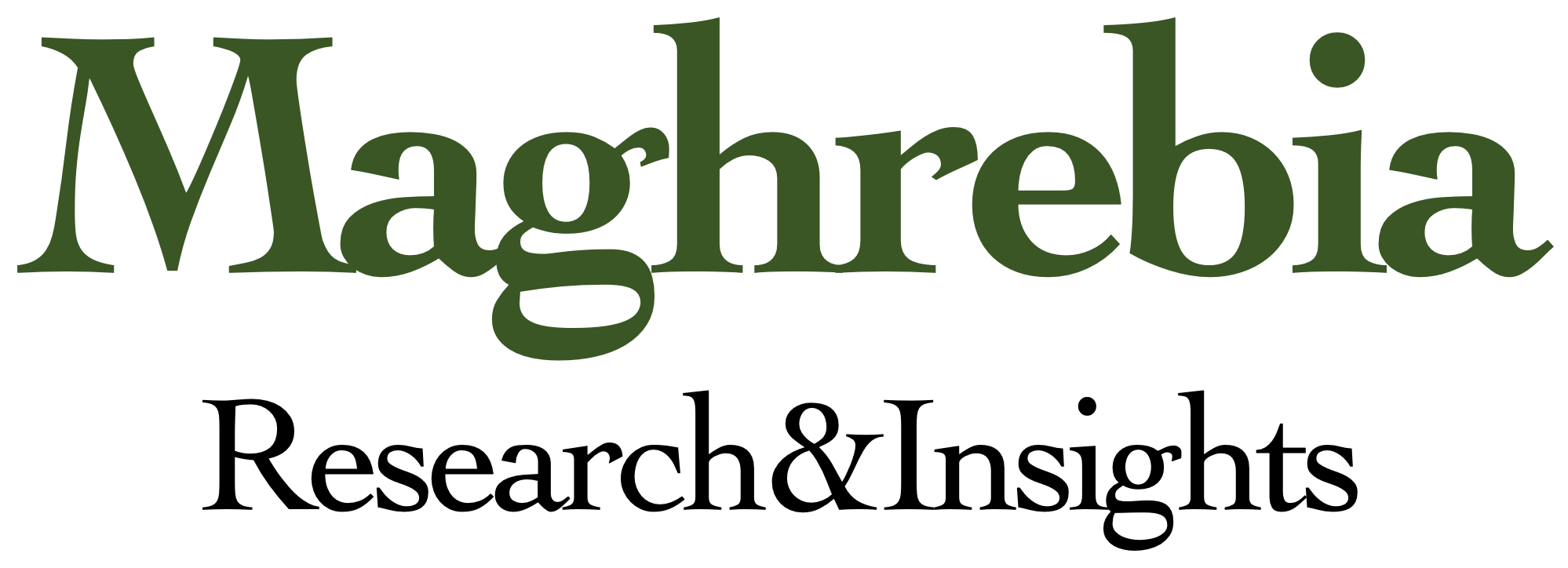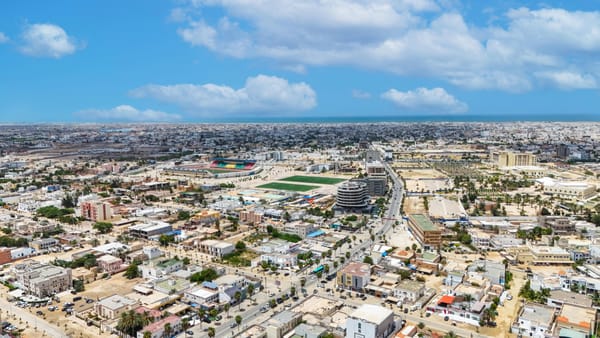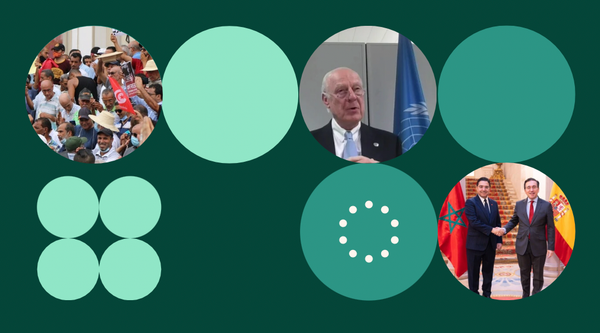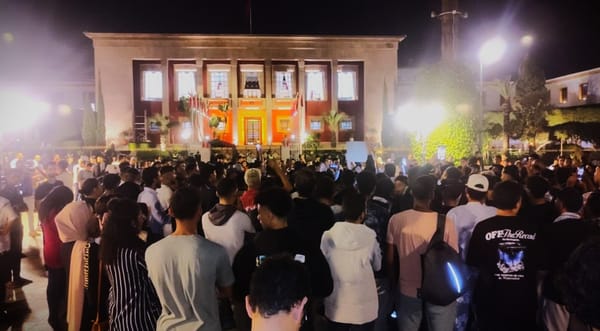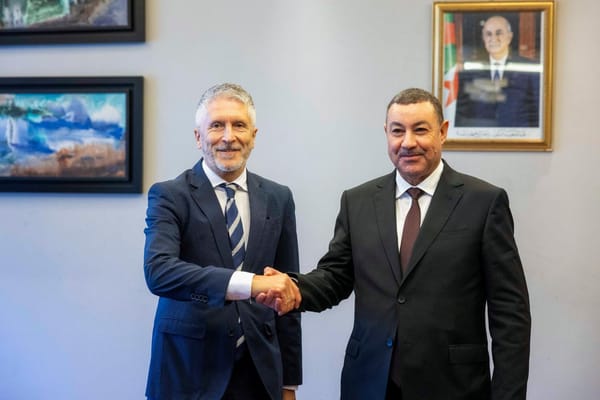No Country for Journalists: Maghreb in RSF's World Press Freedom Index 2025
BRIEF. The prestigious journalists' NGO has published its annual report on press freedom with mixed results for the Maghreb countries. With the exception of Mauritania, which remains in the top third, all the other countries score poorly.

As it does every year, the prestigious NGO 'Reporters Without Borders' (RSF) has published its World Press Freedom Index, which analyses and ranks 180 countries according to the state of their press freedom on the basis of various indicators. Although it had already noted a gradual global deterioration over the past thirteen years, this edition warns that the overall situation has reached the level of 'difficult'. This would be due not only to the various open conflicts or the erosion of freedoms in seemingly democratic societies, but also to the economic difficulties faced by the media, which are affecting their independence and quality throughout the world.
In this context of general deterioration, the situation in the Maghreb countries varies: while Morocco, Algeria and Libya improve slightly (albeit within the 'difficult' category), Tunisia and Mauritania have dropped 13 and 17 places respectively since last year, although the latter remains in the top 50 thanks to important legislative changes over the last decade.
Libya
The country with two parallel governments improved its ranking by eight places compared to last year, mainly due to a certain improvement in the economic situation of the media, as the other indicators remained the same or even worsened, especially in terms of security (falling by nine places). RSF highlights the serious situation of journalists in the context of political division, as they are forced to follow the editorial line of their media, which is determined by the establishment in one or another territory and is therefore subject to the control of the respective powers. The organisation also highlights the lack of legislation to protect journalists and the fact that press offences are still punishable by imprisonment.
Algeria
Algeria has moved up thirteen places, improving on all indicators, although RSF highlights the numerous 'red lines' for journalists, particularly on issues such as corruption and the repression of demonstrations. It considers that the media landscape has 'deteriorated considerably' due to strong pressure from the political establishment. It points to the worrying reform of the penal code in 2020, which criminalises the dissemination of false news 'against national order and security', an abstract charge that has been used in several prosecutions of writers and journalists.
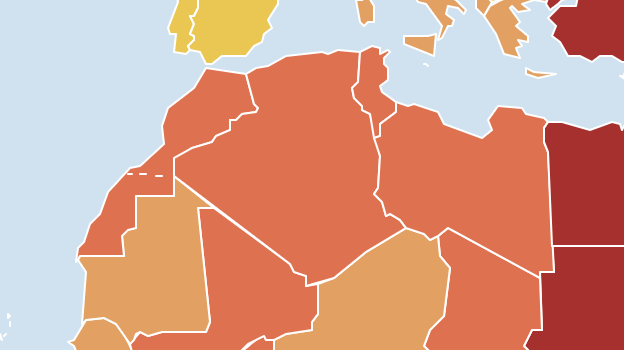
Morocco ("/ Western Sahara")
Morocco has also made significant progress in the rankings, although it has not managed to move out of the bottom third of countries. RSF highlights the lack of genuinely independent media since 2021 and the intense pressure journalists face from different trends in power. Certain issues, such as Western Sahara and corruption, are completely excluded from public debate. The organisation denounced the increase in false charges against journalists (accusations of rape, adultery or illegal abortions) and smear campaigns as a method of pressure, although it also noted the hopeful royal pardons granted to some of them.
Tunisia
Tunisia's already dire situation is worsening with the deterioration of the political scene, the arrest and prosecution of several journalists under archaic laws and the adoption of new rules against 'false information'. RSF denounces the terrible economic situation of the media, which compromises their independence and forces them to align themselves with the government's 'national liberation war', which determines the distribution of public subsidies. The traditional press is also under attack and subject to disinformation campaigns on social networks aimed at discrediting it.
Mauritania
Mauritania is the best performer in the region. Actually, Mauritania has fallen seventeen places due to its sharp decline in all indicators; in 2024 it was ranked 10th in terms of security, now fallen to 46th place in this indicator. However, it is commendable that it still remains within the top 50 countries, on a par with Italy and ahead of some EU states and the US. RSF highlights the decriminalisation of press offences, which allows journalists to work with full freedom, although they are still hampered by their precarious situation. Indeed, the lack of resources has led to the disappearance of several private media. The legislative context is thus favourable, with a 2006 law consolidating press freedom. On the negative side, it is regrettable that there are topics where the media self-censor and that ownership is almost exclusively in the hands of Hassani-speaking groups.
Conclusion
Although three of the five countries in the region appear to have improved their scores, the fact is that they are still in the bottom third of the rankings, which means that there is still a long way to go in terms of press freedom. In the case of Tunisia in particular, the sharp drop seems to confirm the worrying democratic backsliding that the country has experienced in recent months.
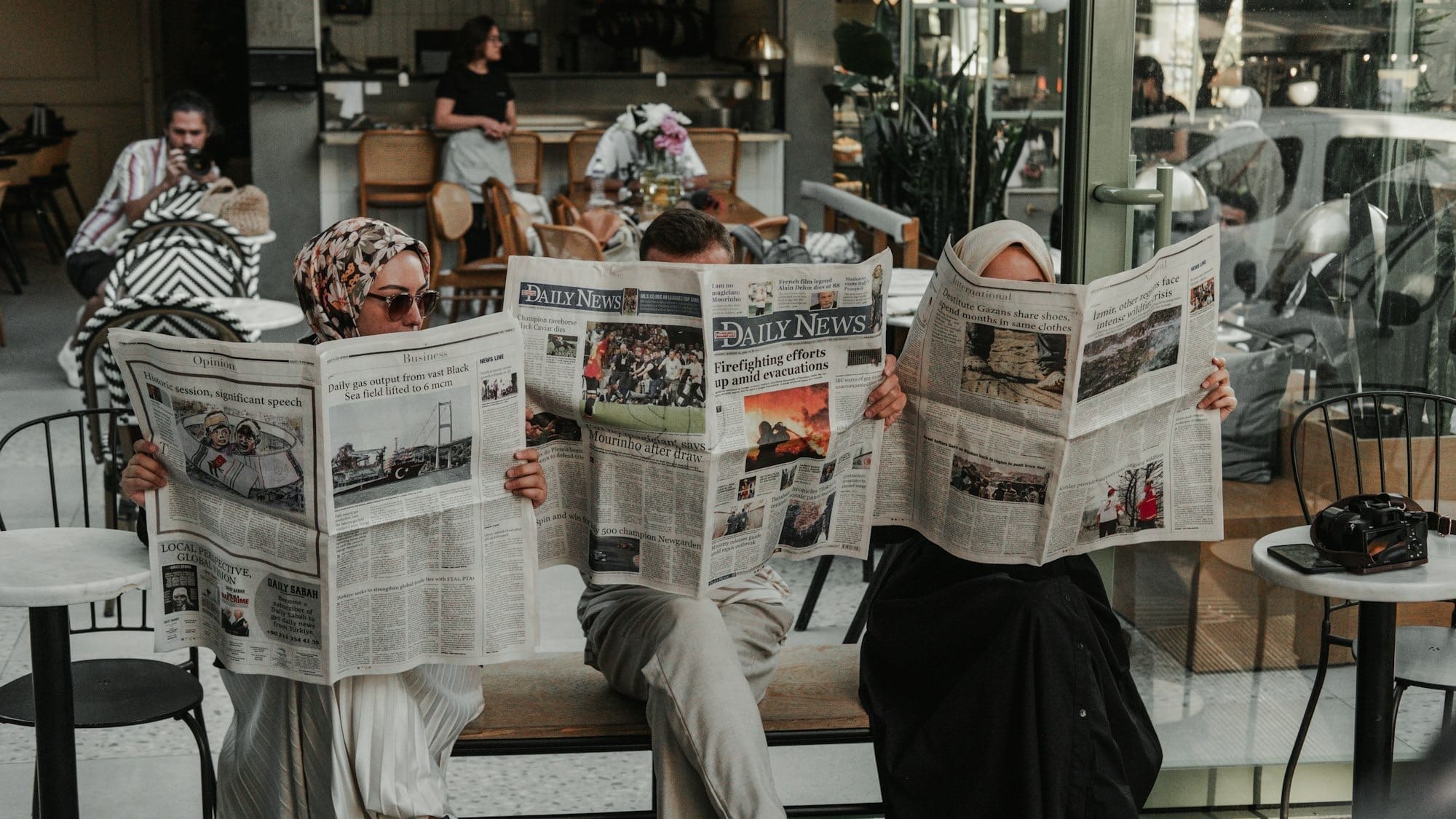
Thus, freedom of information is an essential (though not sufficient) element of a truly democratic society, and all these countries - with the notable exception of Mauritania - should take strong measures to guarantee this right: suppress political pressure of any kind on journalists; guarantee their independence; encourage the diversity of the media, promote their economic development and the prosperity of informers; encourage advertising investment in media that meet free press standards; adopt legislative amendments to suppress press offences; and prevent the distorted use of laws against disinformation, in a way which might be contrary to freedom of information.
Indeed, pluralism of information and press freedom are highly valued in Europe and elsewhere as a visible sign of a country's democratic maturity and level of freedoms, thus contributing to its attractiveness to the outside world. Improving the media landscape and creating a free reporting environment not only enhance politically healthier societies but also have an impact on the image conveyed to the world, being therefore the first 'soft power' tool a country can use to make itself more attractive and establish as a trustworthy state.
Conversely, it is totally inconsistent to present oneself as a democratic state or a guarantor of fundamental freedoms while being among the sixty worst countries in terms of press freedom; especially when one of your neighbours - despite having the worst economic situation in the region - is ranked year after year among the world's top fifty.
